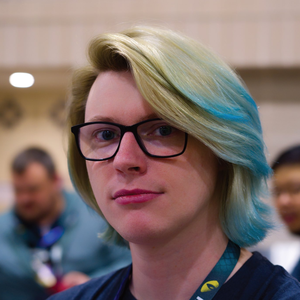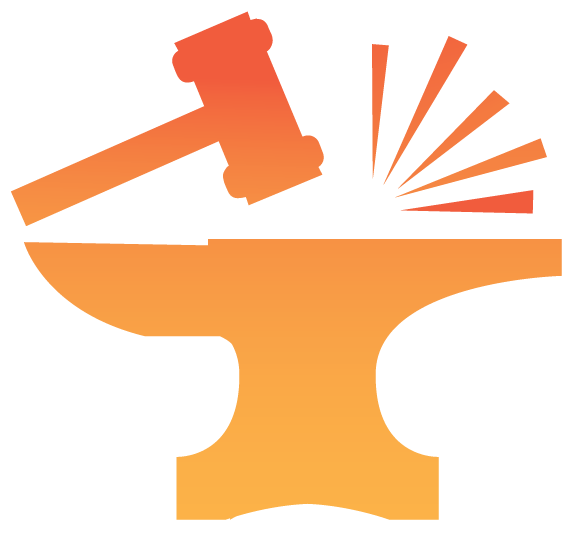Note: This is a candidate page for a Judge Foundry Election. Information on this page is provided by the candidate, and does not represent the opinions or positions of the Elections Committee or of Judge Foundry. For more information about this election, see the schedule and index for the 2024 Regional Advocate Election.
- Name: Steven Krysiak
- Location: Middle River, Maryland, United States
- Election: 2024 Annual Meeting
- Running For: Member of the Board of Directors

Nomination Statement
Hi friends! My name is Steven and I’m an L3 out of Baltimore, MD. Those of you who know me (and now those of you who don’t) know that I’ve only been judging for a little over 3 years, but in that time I’ve completely fallen in love with working events and being a judge. I’m running for a board position because I want to take that passion and use it to help make the judge community better for everyone.
I’m easily the least tenured judge running for a board position, but I view that as a strength, not a weakness. There are some excellent judges running alongside me who I have endless respect for as friends, mentors, and colleagues, and I hope to work alongside some of them to bring a fresh perspective and new ideas to Judge Foundry and work to rekindle a larger sense of community in the judge program as a whole. There are many judges, both Judge Foundry certified and not, who don’t feel heard and those are the people I’m running for and who I hope to be a driving force for.
I believe that having an entity in place to represent us as judges is incredibly important, but I also believe that, if this program isn’t a home for ALL judges, there’s a problem. I know it’s incredibly cliché to say that we’re stronger together, but I truly believe that we are. My goal, as a member of the board, would be to be a voice for judges to speak their minds, to enact change, and to mold the judge program into what they want it to be. I want to be a safe space for any judge of any level, Foundry certified or not, to bring their feedback, good or bad, where they know that it will be heard and it will matter.
Q1: Specializations / Focus Areas
Question: Board Members work on a wide variety of tasks and projects. What would your “specialty” or main focus area be as a Board Member?
I want to focus on community outreach and feedback. There are a lot of smart, talented judges both in and out of Judge Foundry whose voices need to be heard, and they don’t feel like that’s happening right now. This is something I’d like to work closely with the Regional Advocates and their Area Communicators on. I want to hear from judges, both in and out of Judge Foundry, from across the US and Canada. I want to hear what they like, what they don’t like, their feelings about the program, their ideas to make it better, and everything in between and I intend to make sure that communication channel is wide open for anyone who wants to use it. We spend a lot of time talking about giving and receiving feedback, and I think it’s about time we show we mean it.
Q2: Certifications
Question: Many questions related to the value of Judge Foundry membership. First, regarding certifications: How would you ensure that Judge Foundry Certifications have value in the eyes of TOs and other stakeholders?
Making certification have value is, in my opinion, synonymous with bringing the judge community together. Currently we have level definitions, testing philosophies, and an overall structure that has contributed to a rift in the program and made many judges feel like they’re on the outside looking in. When that’s the state of the program, it’s impossible for levels or a certification to have much value. Our focus needs to be on reaching out, working with, and actually listening to these judges to repair our relationship with them and build faith in the program.
The fact of the matter is, certification in general means what we make it. WOTC doesn’t (and probably won’t) support another judge program and LGSs and larger TOs are going to do whatever they believe makes the most sense for their events. If we can bring judges together again and create a sense of community in the program, the certification will speak for itself in time, and that’s exactly what I hope to help accomplish.
Q3: Member Benefits
Question: Second, outside of certifications, how do you think Judge Foundry should best use its limited resources to benefit the members?
I think the biggest hurdle that Judge Foundry has faced is trying to convince judges that having this certification matters to them. For many judges, they already have a relationship with TOs or LGSs and don’t need to worry much about someone knowing who they are or what kind of judge they are. So then what can Judge Foundry do for them?
I remember when I was first starting in the judge program (because it wasn’t very long ago) that I loved conferences. The first “event” I ever worked was a mock tournament, where I got to take calls in a controlled environment and learn from experienced judges. Going to an event and getting to learn from community leaders the day before, talk about rules/policy, and just absorb knowledge from the people around me made me into the judge I am today. It’s something I think about a lot and want to have back. It was a great experience for judges to give or get knowledge and it built such a strong sense of community, and I believe working towards the return of things like conferences is exactly the kind of thing we need to be offering judges.
I believe every judge, in Judge Foundry or not, has a vested interest in the growth of the program. Judges are the most dedicated and hard working people I have ever met and I believe the most important thing we can offer them is, during a time where the future for us feels uncertain, some peace of mind that the judge community will persevere.
Q4: Legal Commitments
Question: Judge Foundry as an organization and Member Directors individually are bound by several Non-Disclosure Agreements, prohibiting disclosure of information gained as part of their duties as a Member Director, including in some cases disclosure of the existence of an NDA with a particular organization. Violating these agreements may have consequences for the individual and for the organization. As a Director, will you abide by any agreements that Judge Foundry has signed, and will you personally sign NDAs with other organizations as needed in order to pursue and maintain partnerships with other organizations?
Yes, I agree to abide by all existing NDAs and sign any new NDAs should I be elected.
Q5: RCQ Judge Demand
Question: In the post Covid era of Magic, the amount of qualified L2 judges seems to have declined, but demand for judges at competitive REL events has grown with the advent of RCQs. Is there a solution you would pursue to prepare enough judges for Comp REL demand?
I think the start of this is education. Significantly increasing the number of conferences, networking opportunities, and online materials/discussions goes a long way. There are plenty of L1s aspiring towards L2 and less experienced L2s hungry for growth and simply the ability to listen to and learn from experienced judges, to have discussions, and ask questions will put them on the path they want to be on.
But this education only goes so far. These judges need hands on experience to tie it all together and in an environment where they can observe and shadow others. Whenever I work a larger, convention style event I often see new faces on the floor. Large TOs already understand how important it is to give judges of a wide range of experience a chance to learn, but the problem is that there are far more judges that need these opportunities than there is space for them on the average staff list. Some local stores might be interested in bringing a second judge onto their RCQs in the name of education, but that doesn’t seem like a viable solution.
Fortunately, the future of competitive magic is looking a little brighter with the announcement of larger, GP-style events starting in 2025. These event will increase the number of hands-on learning opportunities that are available, but it’s up to local leadership in the form of the RAs and their ACs to communicate with their regions about these events and convince local judges to apply.
Q6: Judge Work Opportunities
Question: What efforts, if any, would you support in order to increase work opportunities for judges?
In some ways I feel like this problem is solving itself, at least at a larger level, with the aforementioned GP-style events planned for 2025, MagicCons, CEDH events, NRGs, MXPs, etc. More events like these are happening which create more work opportunities for judges willing to travel.
This question gets a lot harder when considering local judges who do little to no traveling. We can make an effort to connect stores who aren’t using judges with local judges in their area, which might help a little, but at the end of the day stores that refuse to hire judges aren’t going to be convinced so easily. I think this goes back to Question 2 and how to make certifications have value. We have to show them, by example, what certified judges can do. They have to see for themselves how much better those events go and how much happier their players are. Stores are going to do whatever they think makes the most sense for their event, and it’s up to us to show them that hiring judges makes the most sense.
Q7: Judge Foundry Areas for Improvement
Question: Pick one area you strongly feel Judge Foundry needs to improve and tell us your idea for doing so. Is it feasible? Is it achievable? How will you make it happen?
I’ve touched on this issue a few times in previous questions, so I won’t drone on about it too much again, but the biggest issue to me is there is still a huge rift in the judge program as a whole. There are lots of dissenting opinions amongst established and experienced judges and I feel like they need to be invited to have a seat at the table. I think we need to listen, and I mean really listen, to views on levels, testing, maintenance, etc. and work towards solutions that better serve the entire community.
